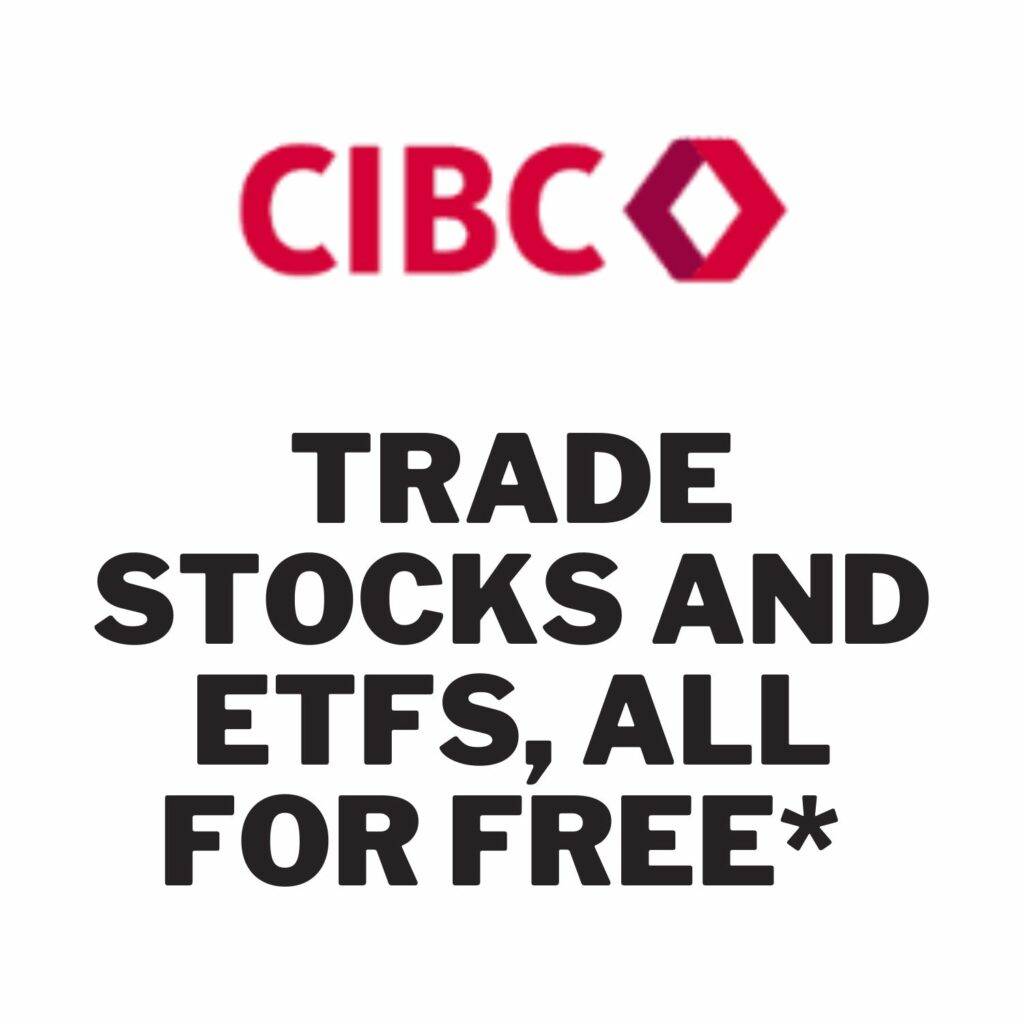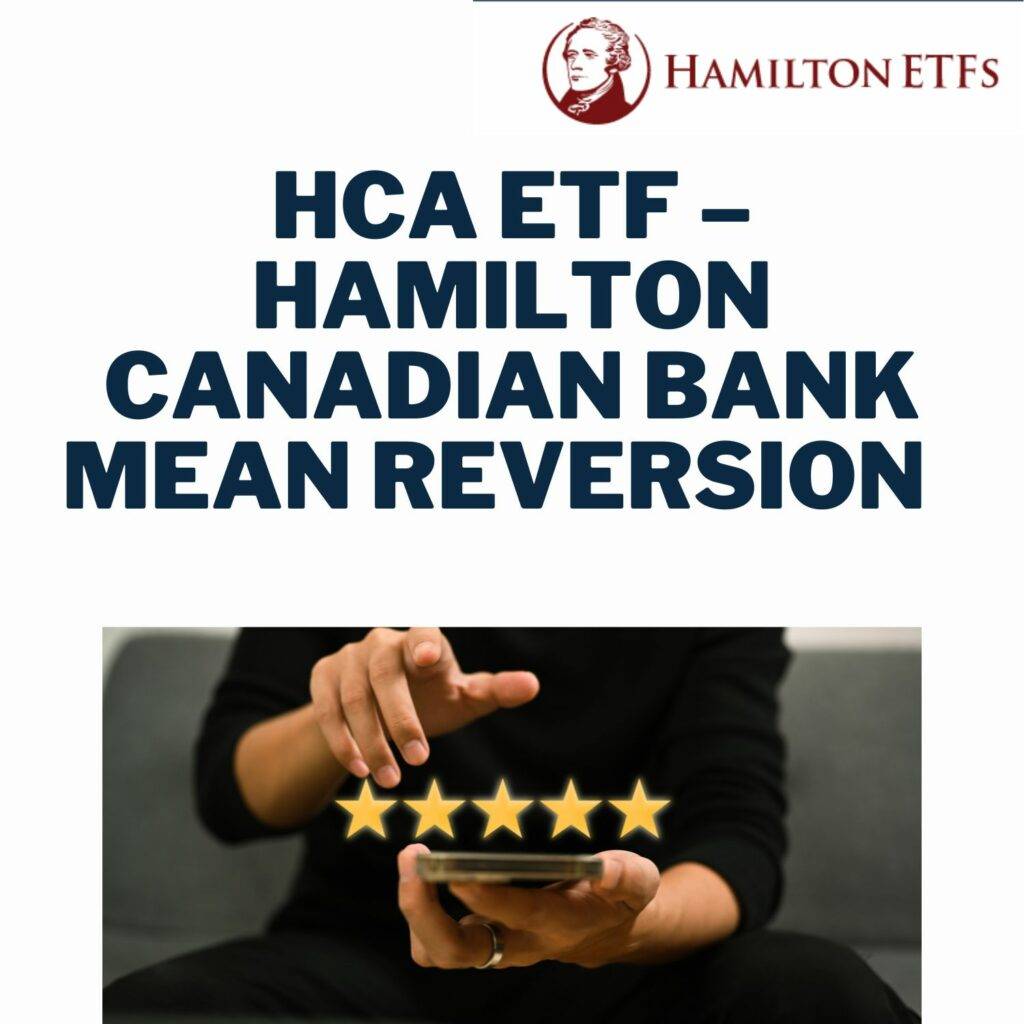HCA Stock: Fund’s Objective
The fund is strategically designed to closely replicate the returns of the Solactive Canadian Bank Mean Reversion Index TR. This index implements a mean reversion trading strategy, a financial theory that suggests asset prices eventually move back to their historical average or mean over time.
In the context of the Canadian banking sector, the mean reversion strategy applied to the “Big Six” banks involves adjusting the weights of individual bank stocks based on their relative performance. Quarterly rebalancing is conducted to realign the portfolio with the mean reversion principle, ensuring that the weights are adjusted to capitalize on potential opportunities created by deviations from historical averages.

This mean reversion approach aims to capitalize on the tendency of asset prices, in this case, the stocks of Canada’s major banks, to revert to their historical mean after periods of divergence. The Solactive Canadian Bank Mean Reversion Index TR has demonstrated historical outperformance when compared to an equal-weight portfolio of Canada’s banks, showcasing the effectiveness of the mean reversion strategy in this specific market context.
Financial data – HCA Stock
[stock_market_widget type=”card” template=”basic” color=”#5679FF” assets=”HCA.TO” display_currency_symbol=”true” api=”yf”]
HCA ETF – Stock review updated daily
[stock_market_widget type=”chart” template=”line” color=”#5679FF” assets=”HCA.TO” range=”1mo” interval=”1d” axes=”true” cursor=”true” range_selector=”true” display_currency_symbol=”true” api=”yf”]
HCA ETF – Stock review updated daily
Review of NNRG ETF: Ninepoint Energy Fund
Top 10 Best Growth ETF in Canada!
HCA Stock Profile
[stock_market_widget type=”table-quotes” template=”color-text” color=”#0F3FF6″ assets=”HCA.TO” fields=”symbol,price,change_abs,change_pct,net_assets,nav,fund_family” links=”{‘HCA.TO’:{}}” display_header=”true” display_chart=”false” display_currency_symbol=”true” pagination=”true” search=”false” rows_per_page=”5″ sort_field=”logo_name_symbol” sort_direction=”asc” alignment=”left” api=”yf”]
Historical performance vs similar ETFs
[stock_market_widget type=”table-quotes” template=”color-text” color=”#5679FF” assets=”FIE.TO,ZEB.TO,ZWB.TO,RBNK.TO,HCA.TO,CEW.TO,HEWB.TO,HCAL.TO,XFN.TO” fields=”symbol,ytd_return,three_year_average_return,five_year_average_return” links=”{‘FIE.TO’:{},’ZEB.TO’:{},’ZWB.TO’:{},’RBNK.TO’:{},’HCA.TO’:{},’CEW.TO’:{},’HEWB.TO’:{},’HCAL.TO’:{},’XFN.TO’:{}}” display_header=”true” display_chart=”false” display_currency_symbol=”true” pagination=”true” search=”false” rows_per_page=”10″ sort_field=”five_year_average_return” sort_direction=”desc” alignment=”left” api=”yf”]
HCA Stock 52 weeks high and low
[stock_market_widget type=”table-quotes” template=”color-text” color=”#0F3FF6″ assets=”HCA.TO” fields=”symbol,price,52_week_low,52_week_low_change_pct,52_week_high,52_week_high_change_pct,fund_inception_date” links=”{‘HCA.TO’:{}}” display_header=”true” display_chart=”false” display_currency_symbol=”true” pagination=”true” search=”false” rows_per_page=”5″ sort_field=”logo_name_symbol” sort_direction=”asc” alignment=”left” api=”yf”]
HCA Stock review updated daily
What are the largest ETFs in Canada?
QYLD ETF Review: Global X Nasdaq-100 Covered Call ETF
Portfolio
| NAME | Weight |
| Bank of Nova Scotia | 27.9% |
| Toronto-Dominion Bank | 27.1% |
| Royal Bank of Canada | 26.4% |
| Bank of Montreal | 6.4% |
| Canadian Imperial Bank of Commerce | 6.2% |
| National Bank of Canada | 6.0% |
Please consult issuers’ website for up-to-date data
What should I know before buying an ETF?
Investors should pay close attention to the following:
- The fund’s objective;
- Risk level
- Management Expense Ratio (Total fees charged by an ETF)
- Liquidity
Are ETFs good for beginners?
ETFs are great for both beginners and Experts.
- They are ideal if you want to bet on a particular sector or commodity;
- ETFs are used by large number of investors as a mean of generating passive income (for instance with Dividend ETFs);
- Actively managed ETFs allow investors access to sophisticated investment styles: Value investing, Covered call,…etc).
What are the Fees associated with ETFs
Management Expense Ratio (MER):
The percentage of a fund’s average net assets paid out of the fund each year to cover the day-to-day and fixed costs of managing the fund. The figure is reported in the Fund’s annual management report of fund performance. MER includes all management fees and GST/HST paid by the fund for the period, including fees paid indirectly as a result of holding other ETFs.
Management Fee:
The annual fee payable by the fund to the manager of the fund for acting as trustee and manager of the fund. This fee forms the largest portion of the MER. Typically, included in the management fee are the costs associated with paying the custodian and valuation agents, registrar and transfer agents, and any other service providers retained by the manager.
Operating Expenses:
Other operating costs such as fees and expenses relating to the independent review committee, brokerage expenses and commissions, and taxes.

